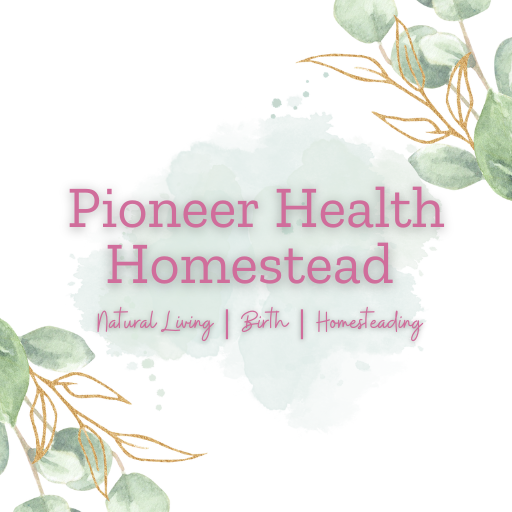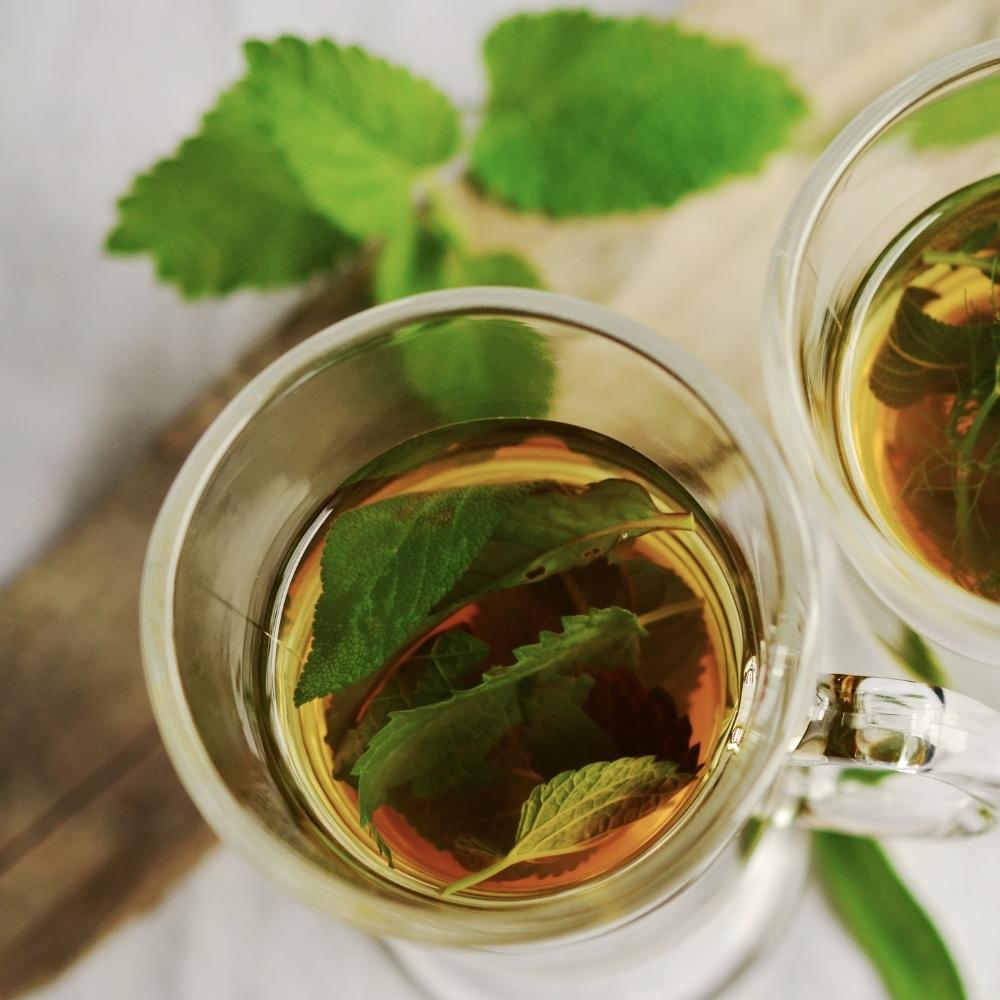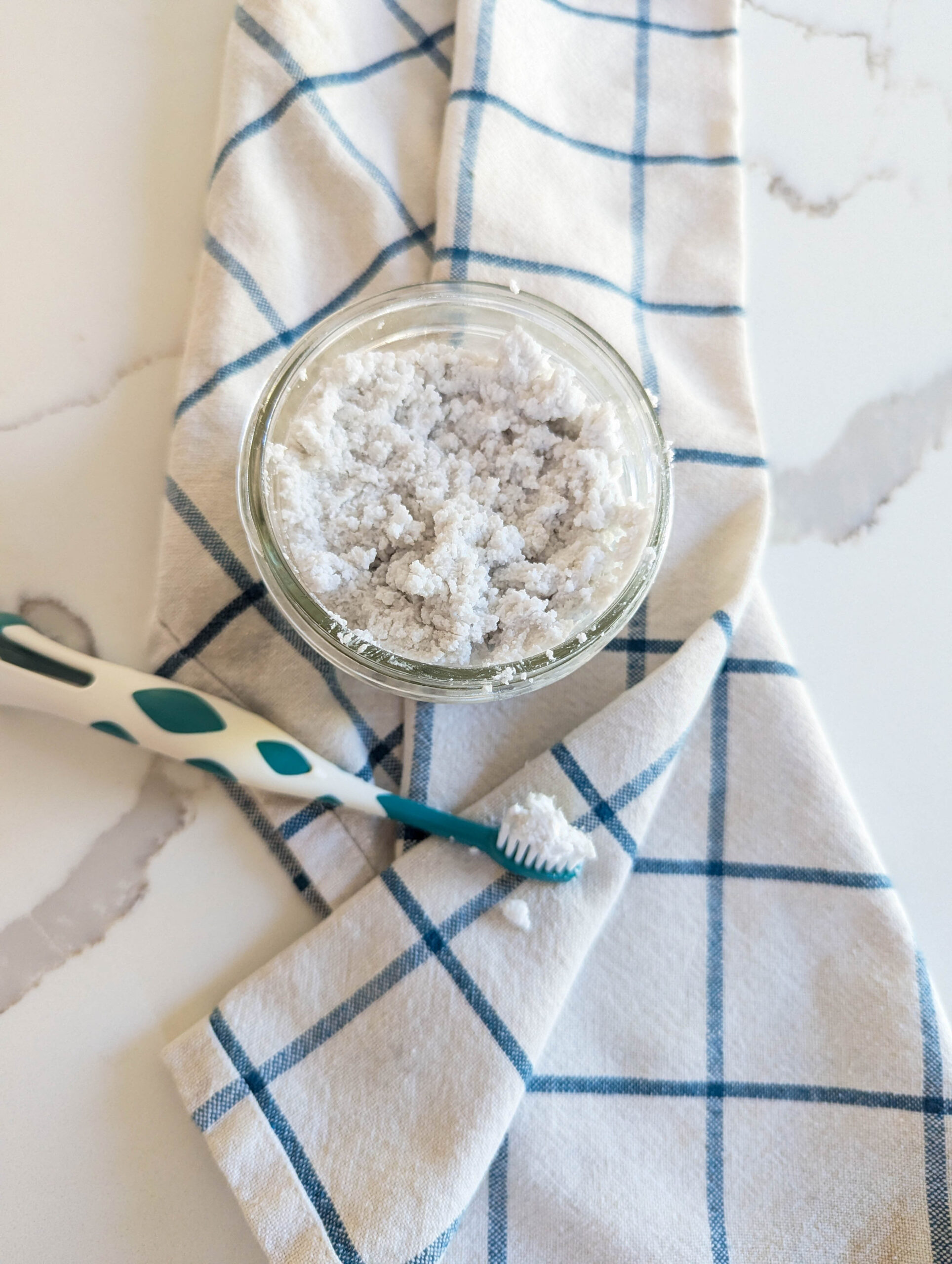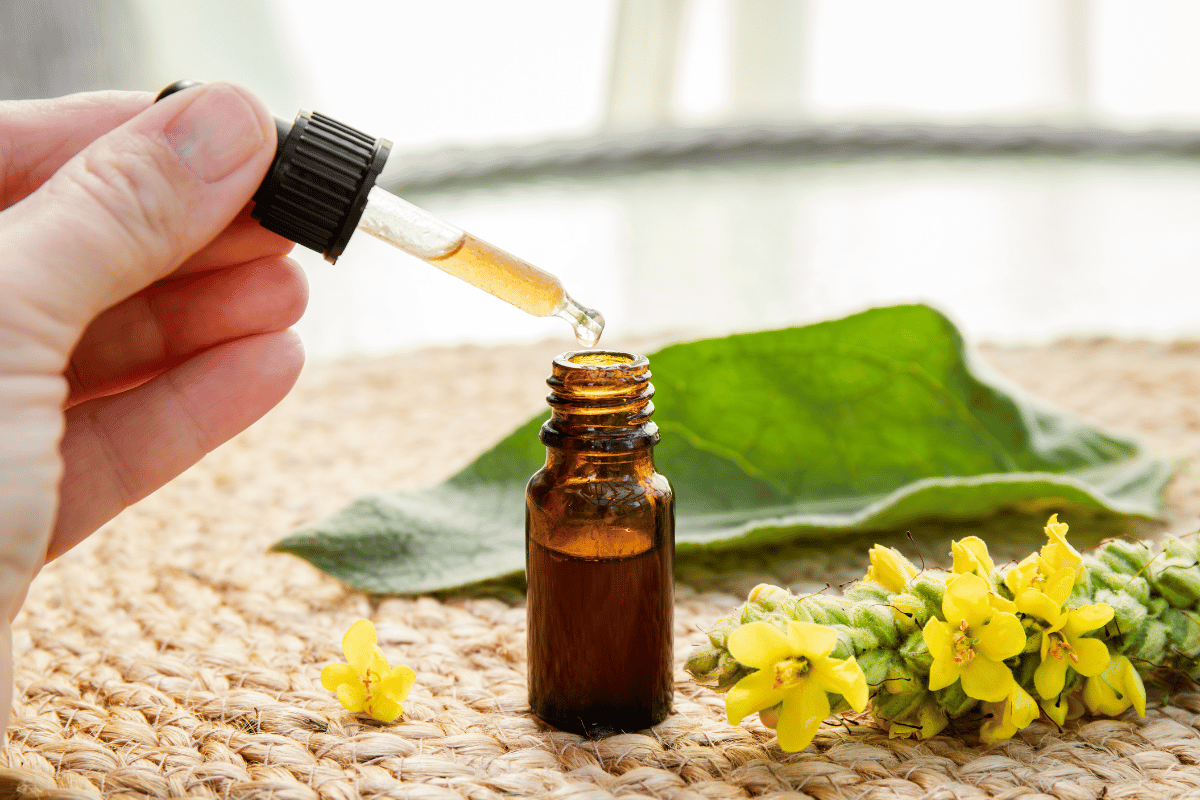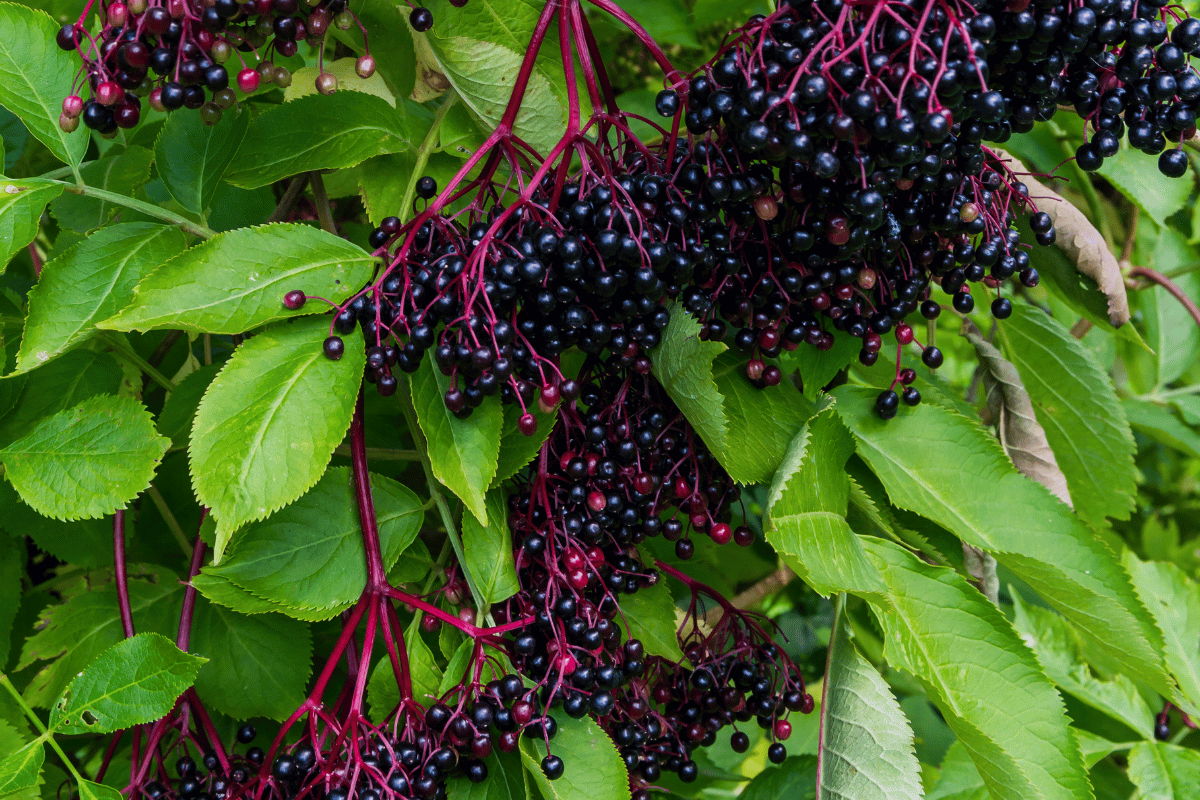Best Health Benefits of Motherwort: Guide for Natural Uses
Best Health Benefits of Motherwort: Guide for Natural Uses
The health benefits of motherwort are gaining attention as more people turn to natural remedies for holistic well-being. Known by its scientific name Leonurus cardiaca, this perennial herb has a long history of use in traditional medicine, particularly in Europe and Asia.
Motherwort, sometimes referred to as “lion’s heart” or “mother’s herb,” has been cherished for centuries for its remarkable effects on heart health, the nervous system, and women’s health. From soothing heart palpitations to easing menstrual cramps, motherwort’s diverse applications make it a valuable addition to any natural health regimen.
Whether you’re dealing with high blood pressure, anxiety attacks, or symptoms of menopause, motherwort might offer the natural relief you’re seeking. In this blog, we’ll explore the various health benefits of motherwort, its traditional uses, and how you can incorporate this powerful medicinal herb into your daily life.

What is Motherwort?
Scientific and Common Names
Motherwort, known scientifically as Leonurus cardiaca, is often referred to by its common names such as “lion’s heart” and “mother’s herb.” The name “lion’s heart” reflects the plant’s botanical name, which translates to “lion’s tail” in Greek, and symbolizes its historical association with courage and strength. The name “mother’s herb” originates from its traditional use in supporting women’s reproductive health and easing childbirth.
Description
This perennial herb is distinguished by its square stem and classification as a member of the mint family. It features jagged leaves and small, pink or purple flowers that bloom in clusters along the upper parts of the plant.
Geographic Distribution
Motherwort has a robust presence in various regions around the world, thriving in areas such as North America, Central Asia, and Southeastern Europe. Motherwort’s hardy nature and adaptability have allowed it to flourish across these diverse landscapes, making it a widely accessible and beneficial plant for many. The health benefits of motherwort are well-documented, adding to its reputation as a valuable medicinal herb in both historical and modern contexts.
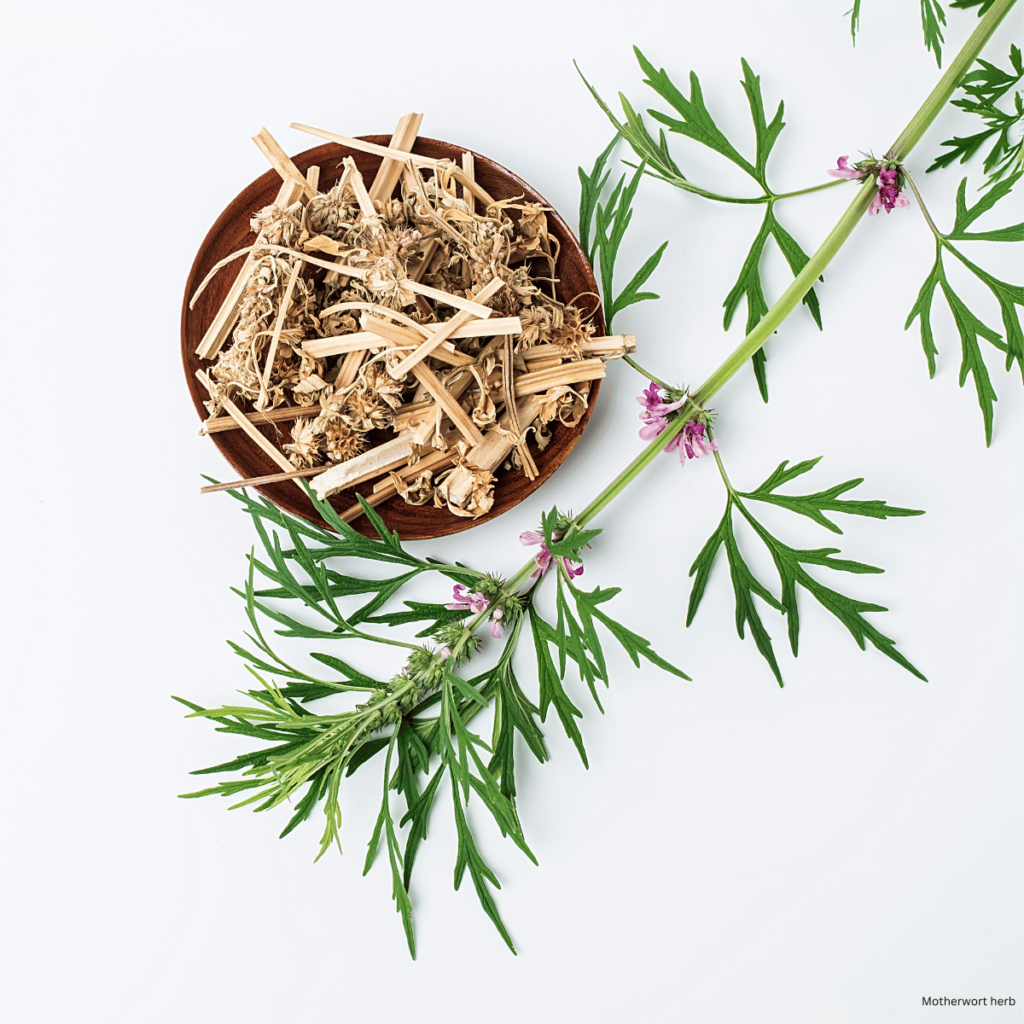
Traditional Uses of Motherwort
Historical Context
Motherwort has a long history of use in traditional medicine, spanning several cultures and centuries. In Traditional Chinese Medicine, it is known as Yi Mu Cao and has been utilized for its therapeutic properties, particularly for women’s health. Similarly, in Europe, motherwort was often prescribed by herbalists and midwives for its calming and restorative effects.
Common Traditional Applications
Traditionally, motherwort has been used to treat a variety of conditions. Its calming properties make it effective for alleviating heart palpitations and anxiety attacks. Additionally, it has been commonly used to relieve menstrual cramps and support overall menstrual health. The health benefits of motherwort extend to soothing the nervous system and promoting emotional well-being, further solidifying its status as a versatile and valuable medicinal herb.

Key Health Benefits of Motherwort
Heart Health
Cardiovascular System
One of the primary health benefits of motherwort is its positive effect on the cardiovascular system. Motherwort helps to reduce heart palpitations and regulate heart rate, making it beneficial for individuals experiencing irregular heartbeat or rapid heartbeat. As a natural remedy, it supports overall heart health and contributes to better blood circulation.
Blood Pressure
Motherwort has the potential to lower blood pressure, acting as a mild vasodilator. This can be particularly helpful for those suffering from high blood pressure, as it aids in relaxing the blood vessels and improving blood flow.
Heart Tonic
Known as a heart tonic, motherwort offers significant benefits for conditions like heart failure. Its ability to strengthen the heart and improve its function makes it a valuable herb in maintaining heart health and preventing heart conditions.
Nervous System
Mild Sedative Effect
Another key benefit of motherwort is its mild sedative effect on the nervous system. This herb helps in reducing anxiety and promoting a sense of calmness, making it useful for those dealing with stress and nervous tension.
Mental Health
Motherwort also supports mental health by alleviating symptoms of melancholy vapors and mood swings. Its calming properties can help improve mood and provide relief from anxiety attacks, contributing to overall emotional well-being.
Female Reproductive System
Menstrual Cycle
Motherwort is highly beneficial for women’s health, particularly in supporting the menstrual cycle. It provides relief from menstrual cramps and helps regulate delayed menstruation, ensuring overall menstrual health.
Uterine Health
As a uterine tonic, motherwort supports uterine contractions and promotes uterine health. This makes it an excellent herb for maintaining a healthy female reproductive system.
Menopause
Motherwort is effective in alleviating symptoms of menopause, such as hot flashes and night sweats. Its ability to balance hormones and provide relief from common menopausal symptoms makes it a valuable herb for women going through this transition.
The health benefits of motherwort are extensive, making it a versatile and powerful herb in herbal medicine. Whether supporting heart health, soothing the nervous system, or promoting female reproductive health, motherwort offers a natural and effective solution for many common health concerns.
Save for Later!
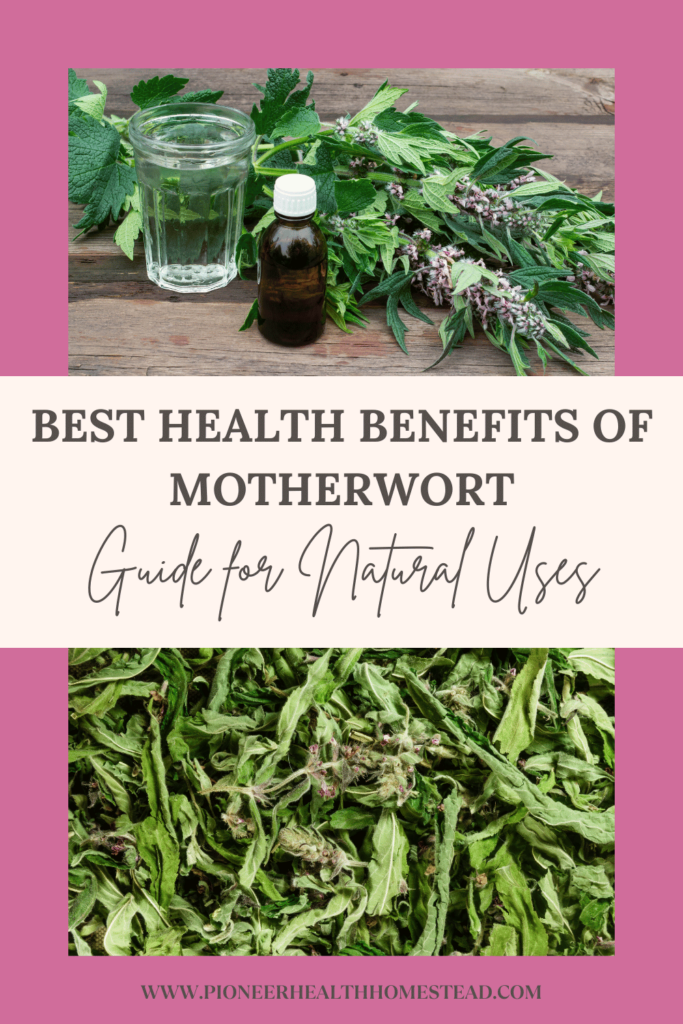
Active Compounds and Mechanisms
Active Compounds
Motherwort contains several active compounds that contribute to its medicinal value. Key among these are iridoid glycosides and ursolic acid.
Iridoid glycosides are known for their anti-inflammatory and antioxidant properties, which help protect the body from oxidative stress and reduce inflammation. Ursolic acid, another important compound, offers a range of health benefits, including anti-inflammatory, antimicrobial, and anti-cancer properties. These active compounds play a significant role in the overall health benefits of motherwort, enhancing its effectiveness as a medicinal herb.
Mechanisms of Action
The active compounds in motherwort interact with the body in various ways, particularly benefiting the cardiovascular and nervous systems. Iridoid glycosides and ursolic acid work together to support heart health by reducing inflammation and protecting the heart from oxidative damage. They help regulate heart rate and blood pressure, contributing to better blood circulation and overall cardiovascular health.
In the nervous system, these compounds exert a calming effect, helping to reduce anxiety and promote a sense of well-being. The sedative properties of motherwort are largely attributed to its ability to modulate neurotransmitter activity, resulting in reduced nervous tension and improved mental health. The combination of these mechanisms makes motherwort a powerful herb for supporting both physical and emotional well-being.

Modern Applications and Preparations
Motherwort Extract
This concentrated form is suitable for therapeutic use, often used for cardiovascular support and stress relief.
Motherwort Tincture
An alcohol-based extract that preserves the herb’s active compounds, ideal for easing menstrual cramps and promoting relaxation.
Motherwort Tea
A herbal infusion that provides a mild yet effective way to enjoy motherwort’s benefits, commonly used for calming the nerves and supporting menstrual health.
Dosage and Administration
Dosage
Typically, 20-40 drops of motherwort tincture or 1-2 cups of motherwort tea daily are recommended. Dosage should be adjusted based on individual needs and health conditions.
Administration
It’s advisable to start with a lower dose of motherwort and gradually increase as needed. Always follow product-specific guidelines and consult with a healthcare provider for personalized advice on administration.
Combination with Other Herbs
Lemon Balm
Lemon balm is known for its calming properties, making it an excellent complement to motherwort. When combined, these herbs can amplify relaxation, reduce anxiety, and promote overall mental well-being.

Red Clover
Red clover supports hormonal balance, which complements motherwort’s benefits for menstrual health and alleviates symptoms of menopause. Together, they provide comprehensive support for women’s reproductive health and hormonal stability.
Understanding the various forms, dosage considerations, and potential combinations allows individuals to effectively incorporate motherwort into their wellness routines to harness its therapeutic potential.

Potential Side Effects and Precautions
Common Side Effects
Motherwort may cause some common side effects, including mild diuretic effects, digestive issues, and potential interactions with blood thinners. These effects can vary based on individual tolerance and dosage.
Warnings for Specific Groups
Pregnant Women
Avoid use during pregnancy, as motherwort may affect uterine contractions.
Those with Heart Conditions
Individuals with existing heart conditions should use motherwort cautiously, as it can affect heart rate and blood pressure.
Users of Heart Medications
Motherwort may interact with medications used to treat heart conditions, potentially altering their effectiveness.

Importance of Medical Consultation
Before incorporating motherwort into your health regimen, it’s essential to consult with a healthcare provider. Professional medical advice can help ensure safe and effective use of motherwort, tailored to individual health needs and circumstances.
Conclusion
Summary of Benefits
Motherwort offers a range of health benefits, including support for heart health, the nervous system, and women’s reproductive health.
Encouragement for Natural Health
Emphasizing the natural and beneficial effects of motherwort, it’s essential to use it responsibly and consult healthcare providers for personalized guidance.
References and Further Reading
Educational Purposes
The information provided is for educational purposes and should not replace professional medical advice.
Our resources page has several books and herbal sources that we recommend and trust.
Studies
- “Effects of Leonurus cardiaca (Motherwort) on Anxiety and Depression in Perimenopausal Women: A Randomized, Double-Blind, Placebo-Controlled Study”
- This study investigates the effects of motherwort on anxiety and depression in perimenopausal women, demonstrating its potential benefits for mental health.
- Link to study
- “The Cardioprotective Effects of Motherwort (Leonurus cardiaca) in Ischemic Heart Disease”
- This research focuses on the cardioprotective properties of motherwort, particularly its benefits in managing ischemic heart disease.
- Link to study
- “Leonurus cardiaca: A Review of Its Phytochemistry and Pharmacology”
- A comprehensive review of the phytochemical composition and pharmacological effects of motherwort, detailing its active compounds and mechanisms of action.
- Link to study
- “Traditional Uses and Pharmacological Properties of Leonurus cardiaca L.: A Review”
- This review article provides an overview of the traditional uses and modern pharmacological properties of motherwort, supporting its efficacy in various health conditions.
- Link to study
- “Motherwort (Leonurus cardiaca L.) Extract: An Investigation of Its Antioxidant and Anti-inflammatory Properties”
- This study explores the antioxidant and anti-inflammatory properties of motherwort extract, highlighting its potential therapeutic applications.
- Link to study
These studies provide valuable insights into the health benefits of motherwort, supporting its use in both traditional and modern herbal medicine. For further information, you can explore these studies and reviews to deepen your understanding of motherwort’s therapeutic potential.
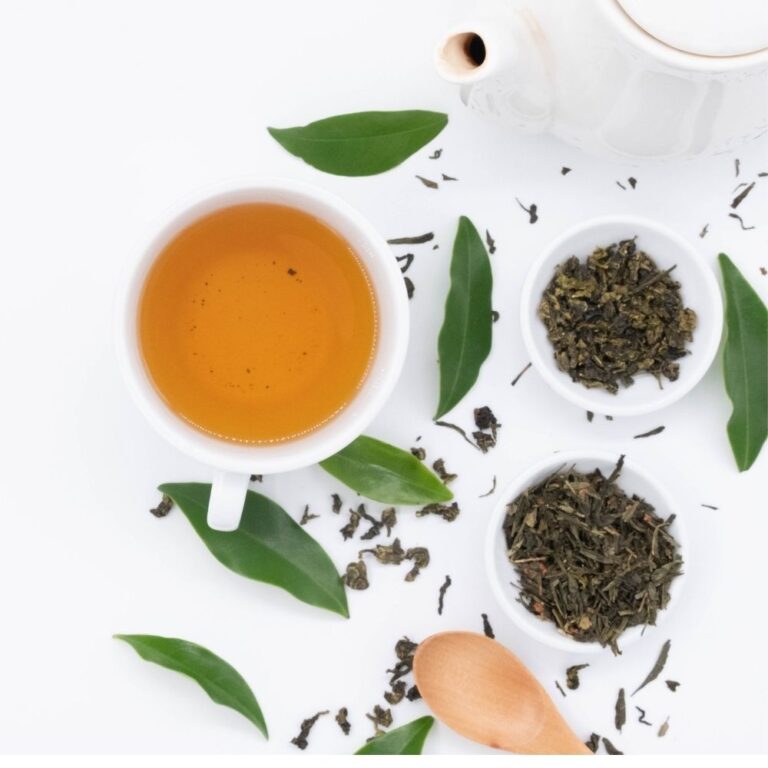
Green Tea Vs Herbal Tea: The Best Complete Tea Guide
Sharing is caring! Facebook Pinterest X Green Tea Vs Herbal Tea: The Best Complete Tea Guide Understanding the Differences Green tea vs herbal tea is a popular debate among tea lovers worldwide. Both offer unique flavors, health benefits, and caffeine content. Tea has a rich history and is enjoyed in many cultures. From Chinese green…
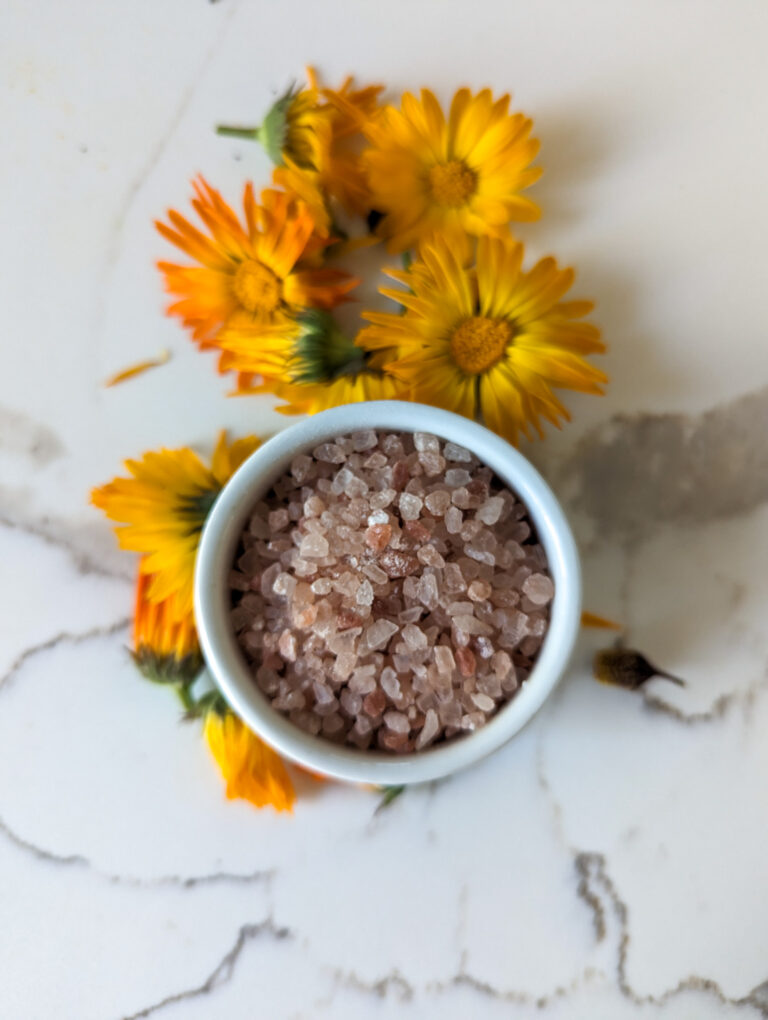
How to Make Bath Salts Without Epsom Salt: Free Recipe
How to Make Bath Salts Without Epsom Salt: Free Recipe How to Make Bath Salts Without Epsom Salt Homemade bath salts without Epsom salt are a great way to enjoy a luxurious soak. You can use natural ingredients like coarse sea salt, baking soda, and pink Himalayan salt for a soothing experience. A relaxing bath…

Homesteading in California: How to Start at Any Stage
Homesteading in California: How to Start at Any Stage How Homesteading in California is Possible Homesteading in California is a journey that looks different for everyone, depending on where you live in this vast and diverse state. From the deserts dotted with Joshua trees in the south, to the rugged mountain ranges in the north,…

How to Make Peppers Grow Faster: Guide and Easy Tips
How to Make Peppers Grow Faster: Guide and Easy Tips How to make peppers grow faster is a common question among home gardeners seeking to maximize their growing season. Whether you’re nurturing sweet peppers, green peppers, or hot pepper plants, creating ideal conditions is essential for pepper success. The best way to achieve healthy pepper plants…

The Different Types of Cloth Diapers: Ultimate Guide
The Different Types of Cloth Diapers: Ultimate Guide The different types of cloth diapers offer a sustainable and eco-friendly alternative to disposable diapers for your baby. As a mom of five and a Registered Nurse, I’ve seen the many benefits of reusable cloth diapers firsthand. This guide will help you understand the major types of…

The Best Doula Bag Essentials Kit for Birth and Postpartum
The Best Doula Bag Essentials Kit for Birth and Postpartum The Best Doula Bag Essentials Kit for Birth and Postpartum A well-stocked doula bag is essential for supporting women during birth and postpartum. As a Registered Nurse, mother of five, and former Navy Hospital Corpsman, I’ve experienced the birthing world from many angles. I’ve worked…
